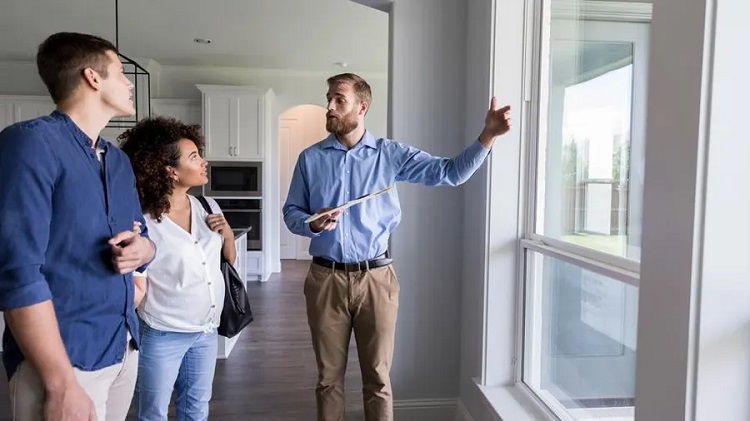Thinking about becoming a real estate agent in the UK? You’re not the only one. The job appeals to a lot of people it’s fast-moving, people-focused, and can be both financially and personally rewarding if you’re good at it.
The good news is, you don’t need a university degree or a licence to get started. But if you want to succeed, it helps to understand how the industry works, communicate well, and get some proper training under your belt. Here’s a step-by-step look at how to get into it.
Step 1: Understand What the Job Involves
Before getting into courses or updating your CV, you’ll want to get a clear idea of what estate agents actually do. It’s not just about showing people around houses.
In most roles, you’ll be:
- Valuing properties
- Taking photos and writing listings
- Arranging and attending viewings
- Negotiating offers
- Liaising with solicitors, surveyors, and buyers/sellers
- Managing sales from start to finish
The hours can be long, especially if you’re chasing sales or working in a competitive area. Evening and weekend viewings are pretty common too. Still, if you like talking to people and enjoy a bit of variety, it might suit you well.
Step 2: Choose the Right Path (Self-Employed vs. Employed)
You’ve got two main routes here.
- Employed by an agency: You work for a company, or a local estate agency. They pay your salary, possibly with commission on top. There’s usually some training involved, and you get a steady flow of leads.
- Self-employed or freelance agent: You work independently. You’ll build your own client base and keep more of the commission but it’s up to you to find those clients in the first place.
Newcomers usually start employed. It gives you structure and support while you’re learning the ropes. Later, if you want more control or higher earnings, self-employment might be worth considering.
Step 3: Get the Right Skills and Knowledge
You don’t need a specific degree, but there are definitely skills that’ll help. The good news? You can build most of them with a bit of effort and curiosity.
Here’s what makes a good estate agent:
- Confidence and people skills
- A calm, persuasive communication style
- Good local knowledge
- Attention to detail
- Organisational skills
- Basic tech skills (you’ll use property portals, CRM systems, and email daily)
If you’ve worked in sales, customer service, or even hospitality, you probably have a head start already. Still, if you’re brand new, it’s worth taking a short course to understand the property market.
Step 4: Consider Getting Qualified
You don’t legally need a qualification to become an estate agent in the UK, but it does help especially when you’re trying to stand out from the crowd.
Look into courses from:
- NAEA Propertymark – respected across the UK, with courses from entry-level to advanced.
- City & Guilds – offers practical qualifications in property services.
- Open Study College or similar providers – offer online courses if you prefer flexible learning.
You might also want to get familiar with the Consumer Protection from Unfair Trading Regulations and the Estate Agents Act 1979, since these cover your responsibilities when dealing with clients.
Step 5: Get Some Experience
If you’re just starting out, try to get some hands-on experience. Even a couple of weeks shadowing someone can give you a good sense of what the job’s like.
Some tips:
- Reach out to local estate agents and ask if they’d consider taking you on for a few days.
- Apply for trainee roles or junior negotiator positions.
- Offer admin or marketing help to get your foot in the door.
Once you’re in, be proactive. Ask questions, observe how more experienced agents handle viewings, and learn how deals are structured. Every day is a learning opportunity in this field.
Step 6: Join a Reputable Agency or Start Your Own
Once you’ve got a bit of experience and training, it’s time to get serious. If you’re going the employed route, apply to estate agencies that fit your style some are more traditional, others focus on high-end property, and some deal mainly in rentals.
If you’re thinking of working for yourself, you’ll need to set up as a sole trader or limited company, depending on how you want to manage your finances. You’ll also need:
- Professional indemnity insurance
- A client money protection scheme (if handling deposits)
- Registration with HMRC for anti-money laundering
- A decent website or online presence
Working solo takes grit and patience, but it can be rewarding once your name starts circulating.
Step 7: Build a Local Network
This industry runs on relationships. People remember agents who were helpful, honest, and responsive. Even if a sale falls through, a good impression can lead to referrals later.
Start building your network:
- Attend local events or business meet-ups
- Stay active on LinkedIn or Instagram
- Keep in touch with buyers and sellers even after the deal
- Be visible in your area – sponsor a local event or advertise in a nearby café
It’s not just about visibility it’s about trust. Be the person who answers questions clearly and keeps people in the loop.
Step 8: Keep Learning
Property trends shift. Legislation updates. Buyer expectations change. Even if you’ve been in the job for years, it pays to stay sharp.
You can:
- Subscribe to trade publications like Estate Agent Today
- Join online forums or local industry groups
- Take advanced training through Propertymark or similar bodies
- Learn about new tech (virtual tours, CRM systems, property data tools)



